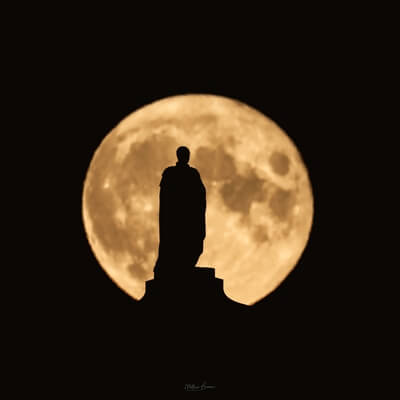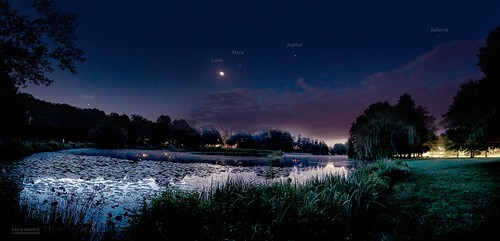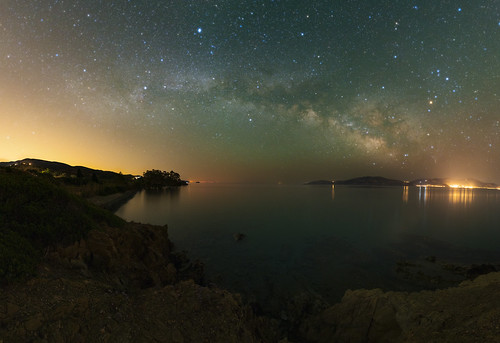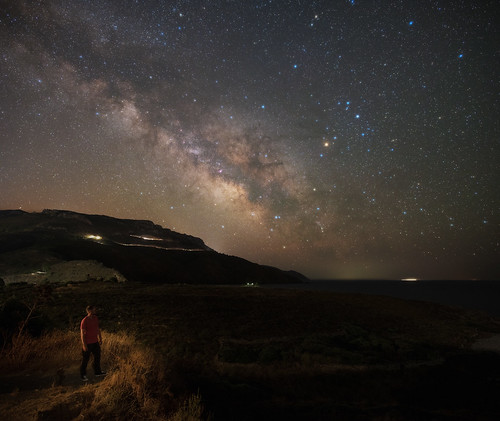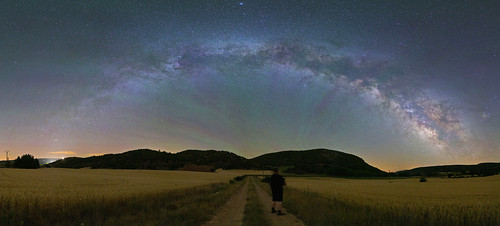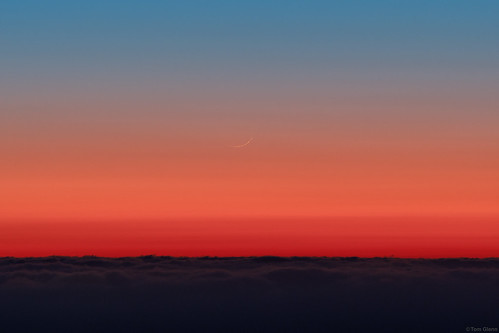 Soaring with Saturn by Tom Glenn, on Flickr
Soaring with Saturn by Tom Glenn, on FlickrThe ISS and Saturn fly in formation above Temecula, CA in this single frame 1ms exposure that shows simultaneous detail on both. Despite the close proximity in frame, the range to the ISS at the time of this image was 602 km, whereas the distance to Saturn was 1.38 billion km. This is not a composite image, but is a single frame extracted from a video that I captured at 04:26:23am PDT on June 24, 2022 from the parking lot of Red Hawk Elementary School in Temecula, CA (exact GPS coordinates of telescope setup are 33.4688N, -117.0984W).
I uploaded a video that includes the raw data to YouTube.
Time-lapse image sequence is available here.
Despite the short exposure necessary to freeze the motion of the ISS traveling at 7.4 km/s, details on both the spacecraft (magnitude -3) and Saturn (magnitude +0.5) are simultaneously visible in this single frame. These include hints of the Cassini division in Saturn’s rings, as well as the shadow of Saturn’s globe on the right side of the rings, indicating that Saturn has not yet reached opposition from the Sun. There have been no selective adjustments to image brightness. Saturn appears dark because it has a much lower surface brightness to that of the ISS.
Capturing this image was a logistical and technical challenge. The orbital elements were unstable due to both a debris avoidance maneuver that required an unplanned rocket burn as well as an aborted orbital reboost maneuver.
Equipment details:
Celestron C9.25 Edge HD telescope
Celestron CGEM mount
ZWO ASI183mm camera (no filter)
Capture software: Firecapture
Exposure: 1ms
Gain: 220
Frame rate: 38fps
Bit depth: 12
Spacecraft ephemeris data: NASA, Space-Track, and Celestrak
Ground path prediction: software by Ed Morana
